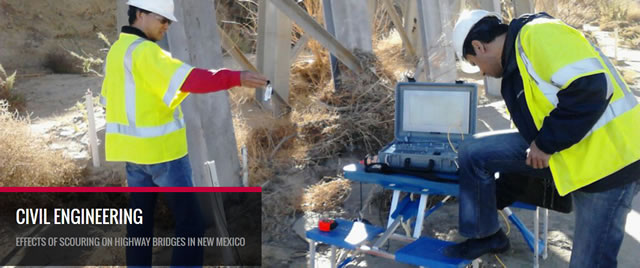
Civil Engineering ETDs
Publication Date
Spring 5-12-2024
Abstract
This study improves flash flood prediction by analyzing the vital role of infiltration models in hydrologic modeling, especially for areas with scarce data. It offers new parameter estimation guidance for three infiltration models—initial-constant (IC), linear-constant (LC), and Green-Ampt (GA)—based on plot-scale rainfall simulations. The research emphasizes the impact of soil texture, moisture, and crust on model parameters. A comparative analysis of four models (curve-number, IC, GA, and LC) using data from Arizona's Walnut Gulch Experimental Watershed under different calibration scenarios shows the GA model's superiority in certain conditions, though it faces issues of equifinality in unconstrained calibrations. Meanwhile, the simpler IC model shines in unconstrained scenarios, and the LC model strikes an optimal balance between simplicity, effectiveness, and feasibility, particularly in arid and semi-arid regions.
Keywords
Flash Flood, Hydrologic Modeling, Infiltration Models, Green-Ampt, Curve-Number, Initial-Constant, Linear-Constant
Document Type
Thesis
Language
English
Degree Name
Civil Engineering
Level of Degree
Masters
Department Name
Civil Engineering
First Committee Member (Chair)
Julie Coonrod
Second Committee Member
John Stormont
Third Committee Member
Gerhard Schoener
Fourth Committee Member
Bruce Thomson
Recommended Citation
Rassa, Sara. "OPTIMIZING FLASH FLOOD PREDICTION IN ARID AND SEMI-ARID REGIONS: A COMPARATIVE EVALUATION OF INFILTRATION MODELS AND PARAMETER ESTIMATION GUIDANCE ACROSS SPATIAL SCALES." (2024). https://digitalrepository.unm.edu/ce_etds/326
